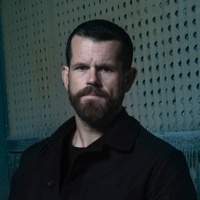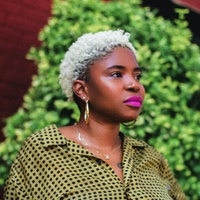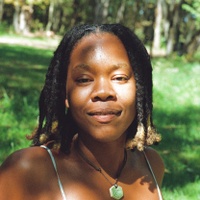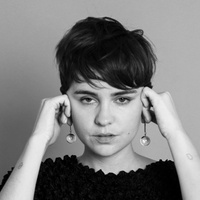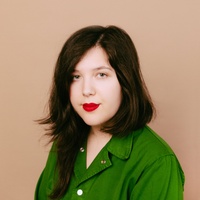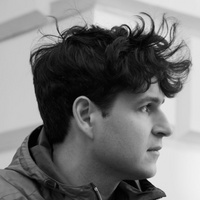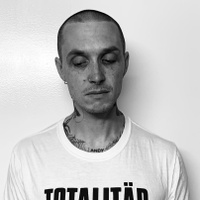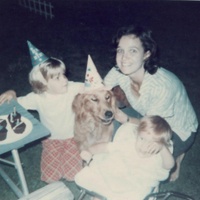Year End: On growing older
The end of each year is, obviously, the end of something. Then, just as quickly, it’s a new beginning.
I was recently thinking about the ongoingness of time, how I’ve been on this planet for a while now, and how in 2020, I’ll have been here even longer.
We mark the shift in the new year with yelling and confetti because the moment would otherwise pass without notice. If we didn’t shout “Happy New Year!” it would just be another night.
Likewise, we quickly change momentum and direction when we die—but it doesn’t always come with such a flourish. You’re here, then you aren’t. Sometimes it’s marked, and sometimes you just fall asleep.
I’m not unique in thinking about mortality. Death and dying are things we can all empathize with, no matter what we do for a living, or what we see as our creative practice. It’s a shared process that disregards demographics. Creative people often talk about how they work best with some kind of time constraint, and, well, this is a big one.
Focusing on the inevitable, unending march toward death could be seen as depressing, sure. I find it powerful, though, to accept that there will be an end and that until then, we do what we can, learn what we can, surround ourselves with people and things we love, and we keep going while we have that ability to do so. It’s a gift to be here, and it feels good to try each day to make the most of it.
There’s a sports cliché where people, usually an announcer or a coach, will remark that “the game’s slowed down” when a rookie player starts to get more comfortable, and different facets of the game seem to come easier to them. The idea is that they can see everything more clearly—like it’s all suddenly in half-speed. (I think this happens for non-athletes, too, when we get more used to a new job, or whatever.) It’s a cliché, definitely, but most clichés exist because there’s truth to them, right?
As I’ve gotten older, I’ve definitely felt things slowing down: I understand the day-to-day more, and I make better use of my time. But I’ve also felt things speeding up: I watch my kids grow, and their lives expand, and it reminds me that one day mine will grow smaller until I’m no longer there. And, in general, things just seem to move faster now, even though I do get more done in what feels like less time.
Age and aging come up often in TCI interviews. It can be for practical reasons (shifts in health, mindset, money; the death of parents, friends, loved ones). It can be a basic detail. It can also surface in subtle and poetic and moving ways. It can feel like a hard-won lesson.
For instance, the idea expressed in Mike Pace’s essay “I Am Not The Next Big Thing” that we should make things because we want to make things, even when people are no longer paying attention. We get something out of the making, so even if it’s just happening on a small, personal scale, we keep doing it because it provides us with satisfaction, maybe even bonafide joy.
This is something I likely wouldn’t have understood as a kid. But, then again, maybe I did know it back then: We un-learn a lot as we grow. As kids, when our minds are purer and clearer, we don’t overthink most things. As adults, we have to relearn a lot of what we once knew as simple truths.
For instance, I’ve thought about this when watching an adult “learn” the proper technique for running, and once they perfect it, I realize they’re running just like my 9-year-old son (and all of his friends).
Here are some thoughts on aging, death, and (therefore) life from a variety of people we spoke to for TCI. Each sentence taught me something this year—maybe something I used to know and just needed to see again, so I could remember not to forget.
Some years ago, the other member of YMO, Haruomi Hosono, he’s five years older than we are, went to Cuba to look for some musicians, and he saw a very old musician, maybe in his 80s, playing bass in a club or a bar, and his expression about this old musician was, “This old guy plays the bass like cutting tofu.” You must be very gentle cutting tofu, otherwise you can damage it, break it. I love that expression, and I want to be like that. I should be like that at 80.
I don’t know if it’s getting older, but experience has led me to recognize that it’s okay to ask for help. I don’t have the answers to everything and, in some cases, anything. I have learned to be open to ideas and advice. Whether it’s in the morning working out, or from friends, or even people I don’t know, I like hearing how others are handling their situations. Watching friends and loved ones who I deeply respect ask for the help they need and how they arrived at those moments has been a profound lesson for me. I feel like I am in this beautiful moment of having a capable body and just enough wisdom to recognize where I can help others, and that I also need help. Asking for help is expressing vulnerability, and being vulnerable is a very deep multi-sensory way to observe. I’m learning how to be in that space more often. I like to think that what I am talking about is more like the baleen of the whale filtering the sea for food rather than the talons of an eagle preying on field mice with precision.
I’m very much a loner, and I try to be alone with my thoughts a lot more now, as I’m getting older, so that I can be clear about the things that work for me and don’t work for me. What I need to put energy into, what I don’t need to put energy into. What is uplifting me and what’s not uplifting me.
As somebody in their late 20s who’s feeling like they’re dying and being reborn over and over again, I think it’s really important for me to see things in the world that I want for myself, and then find ways to be those things.
I see how art impacts people who are dying. It means so much to them. How could that not be worth doing or how could that be futile? We’re all going to die, so you might as well at least spend part of your life doing something you genuinely love, because what if there’s nothing after? Your time is precious, so you might as well enjoy it.
I’m always reading the Tibetan Book of Living and Dying. It’s a spiritual text that is everything I want from a spiritual text. Always talking about how to live in a way that makes you be at peace with your death, and how that can proliferate into your relationships. Getting rid of unhealthy attachments. I read a paragraph at a time and I feel like I’m sated spiritually for a month.
Two years ago, I was keeping a dream diary of every time my late husband, Dale, appeared in a dream. I would write it down. That is something that I did, but then I took the book and put it in a safety deposit box. I think I made it mysterious for myself, and I made it inaccessible, so that I can actually mark time. After Dale died, I couldn’t remember our marriage at all for three months. People say that’s common, that you don’t remember anything when you’re in shock. I wanted to leave it in its own space
I’ve been so much more interested in live music, getting older and looking for models of artists who are 10 to 15 years older than me and being like, “Who would I, if everything went right, want to be like when I’m in my early fifties?
I feel my body aging. It feels a lot more fragile than it was 10 years ago. It feels different, and part of that is because I’m doing things like biking and rock climbing, and maybe I don’t quite stretch enough. It’s this real contracting energy…but it’s nice. I’ve found that engaging with the world and feeling strong and feeling a source of energy that’s derived from something that I’m physically doing is holistic.
My aging body is a part of who I am and my work, so in whatever form I exist, I’ll make that an important part of my practice.
You’re free if you acknowledge what the confines are and are willing to get out of it. It can either be your cage or it can be your ladder out of the cage. Just keep going.
Brandon Stosuy is the co-founder and Editor in Chief at The Creative Independent. He co-founded and co-curates the Basilica Soundscape festival in Hudson, NY, the Tinnitus Music Series in NYC, and the Broad Museum’s Happening series in Los Angeles. As Zone 6, he manages the artists and musicians Zola Jesus, Circuit des Yeux, Girlpool, Hether Fortune, Jess Williamson, Kinlaw, and Lydia Ainsworth in partnership with Caleb Braaten. He and Braaten also co-curate Zone 6 Gallery at TV EYE in Ridgewood, Queens. For the past dozen years he and the visual artist Matthew Barney have collaborated on a series of live events, objects, one anti-Trump public sculpture, and print publications related to their performance space, REMAINS. They are presently at work on a large-scale book about REMAINS. His anthology, Up is Up, But So Is Down: New York’s Downtown Literary Scene, 1974-1992, was published by NYU Press in 2006. He’s published two children’s books, Music Is (2016) and We Are Music (2018), both on Simon & Schuster. The first installment of his three-volume DIY guided journal series will be published by Abrams in Fall 2020.
[Note: The photo next to this bio is of me as a baby, with my mother and sister and my dog Sandy. I think it was Sandy’s birthday. I found the picture when my mother died, and I come back to it often. It’s not a moment I otherwise remember.]


